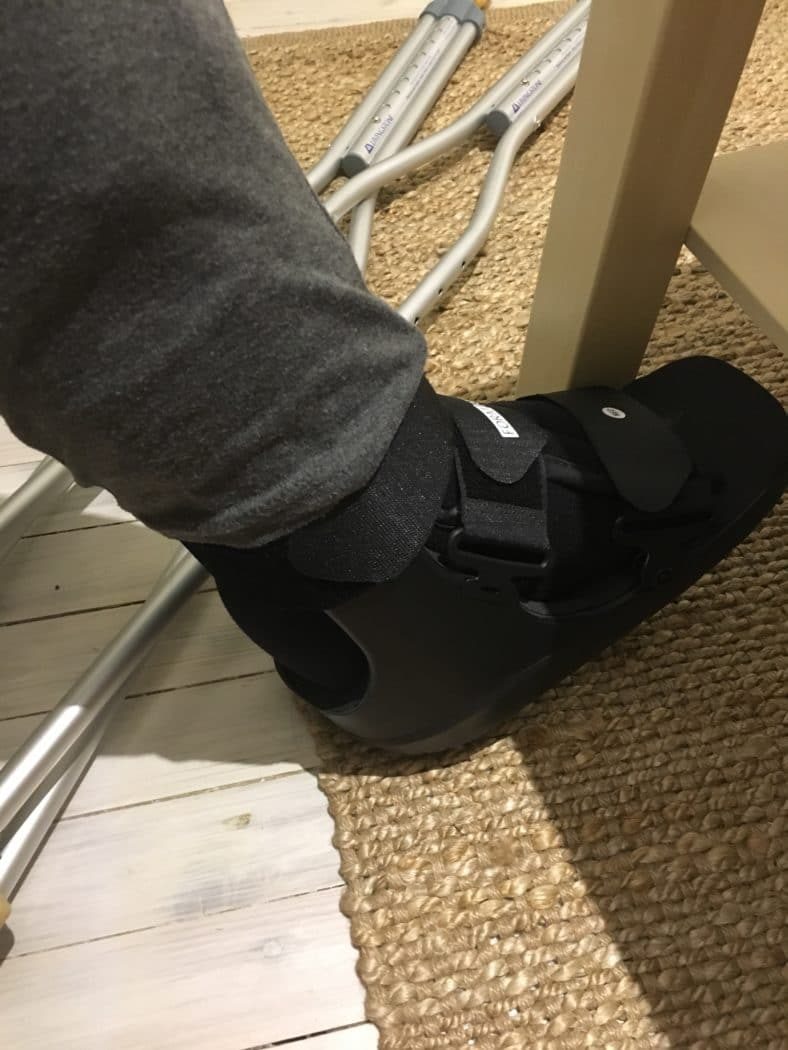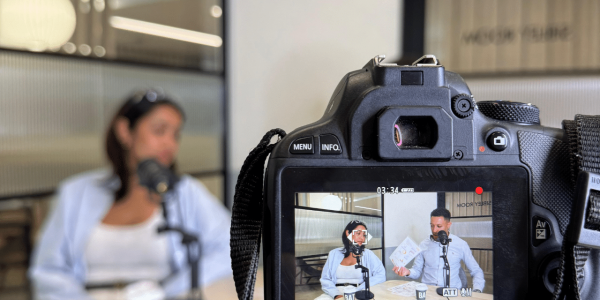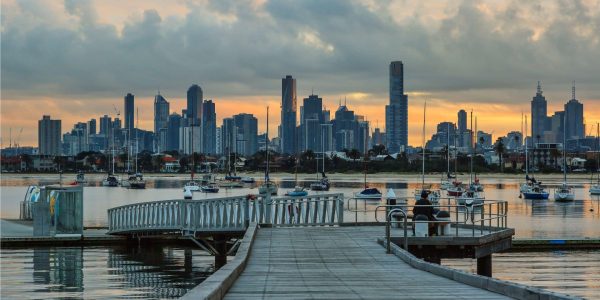Who said millennials don’t have resilience?
If you haven’t heard already, I tore my Achilles and was on crutches for a month! And to add salt to the wound – a moon boot for another month to follow! I’m not looking for sympathy but to share my journey that many others can relate to. I have decided to put a two part series together, looking back on the honeymoon and rehabilitation process. There’s a lot of criticism from other generations about how millennials are lazy or that we don’t have resilience. If you’re on that ‘millennials don’t have resilience bandwagon’, keep reading!
To set the scene, at the end of June I went to the gym early Saturday morning to have a decent sweat session before the weekend commenced. This sweat session resulted in an injury, which was an external cut on the back of by ankle and meant I was in surgery the next day, a very unexpected event. To cut a long story short, I was in the wrong place at the wrong time.
I’m sure many of you have experienced a similar situation. Whether it be an injury or illness, you have been forced to adapt your lifestyle. Looking back, it could have been worse. But for someone who uses exercise for stress relief, entertainment and more importantly to keep my mind and body healthy – it was a significant event! Simple activities such as making a coffee and carrying it to my desk and hanging out washing proved a lot more difficult than I had anticipated.
Who said millennials don’t have resilience?
I remember as a kid seeing friends with a broken leg and borrowing their crutches pretending to be injured. I’d always wished this was me! The reality of this wasn’t what it was cracked up to be. The honeymoon stage is a mixture of feelings and emotions. There is an element of shock, fatigue and frustration.
Injury
In New Zealand we use the phrase “She’ll be right”. This means that everything will be alright, there is no need to worry. I was thinking this immediately after I was injured as it didn’t seem too severe. However, after consulting with family and friends, I came to the conclusion that it needed to be seen to by a medical professional.
My suggestion to others would be to nip it in the bud early on, always get an injury or sickness cleared by a medical professional no matter how minor. I would not recommend taking any shortcuts or self diagnosis with your well being – after all your health is your wealth!
Pre-operation
I remember sitting in the Manly hospital, looking over Sydney. This could have been an amazing moment having recently moving to Sydney. In reality, I was having a couple of tears over the phone with my Mum back home in NZ. I was feeling anxious and very scared the morning of my surgery. To top it off I’ve got a huge fear of needles! This was my first surgery ever and to add to the equation, I was away from my home and without my family.
Post operation
I was in a state of shock when I woke up from the surgery and looked down at the moon boot. It was the worst case scenario, a 60% torn Achilles. The effect of a general anesthetic is different for everyone but for me I felt very vacant and like I was in a dream for the following week. It was difficult to concentrate and I was very fatigued from the whole event. I was lucky enough to have a bunch of supportive friends who were able to assist me with transitioning from the hospital to my flat and the dream team here at Precision Sourcing checking in with me on a regular basis.
My recommendation to others would be to rest and take the time that is required to recover properly, even if you are bored at home! The short term pain is the long term gain. You must accept that it is okay to take time out and enjoy Netflix, reading a book and the occasional glass of wine or two.
Follow up
This is where the frustration really set in. The lack of independence, the reality of getting to and from work and even the simple task of making dinner. I became very reliant on my friends and family for emotional and physical support. Alongside that, the bills for prescriptions, treatments, Uber, Deliveroo or grocery delivery stacked up quickly.
I would highly recommend to others to surround yourself with people and accept that it is okay to feel down. Make sure you keep your chin up and set short term goals and feel good activities (facials and massages) to keep focused on the long term goal. Also, have a reliable health insurance policy in place to keep the pressure off! I always thought this would never happen but when it does you’ll realize the financial burden it can cause!
At this stage there have been no set backs and I’m now using both my feet! I have been told I won’t be seeing the surgeon again, just physio from this point on. I’m on the road to recovery and have been in Melbourne for the weekend with many more social plans up my sleeve!
This all sounds very negative and in reality it is! I don’t want to paint a pretty picture. But I can tell you being on crutches is not as funny as I once thought! It tested me mentally and physically but showed I was able to adapt to change and be resilient in the process. The journey still isn’t over and I am still on the mend but can definitely see the light at the end of the tunnel. So, whoever said millennials don’t have resilience have been proven wrong!
Stay tuned for part 2 of this journey…










